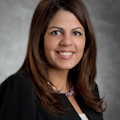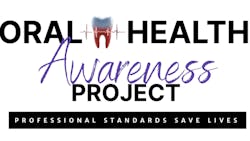A dangerous shortcut: The push for nonaccredited paths to dental hygiene
What you'll learn in this article
- Legislative changes could allow undertrained dental hygienists, risking patient safety and lowering professional educational standards.
- CODA-accredited dental hygiene programs require 3,000 training hours; proposed alternatives demand far less preparation.
- Accredited dental hygienists provide essential, life-saving care—licensure and education are critical for public health protection.
- The Oral Health Awareness Project defends accreditation, educates the public, and mobilizes professionals to protect care. Join today!
Legislative efforts are being made across the country to lower educational standards for entry into the dental hygiene profession. The introduction of nonaccredited dental hygiene training paths may put patients at serious risk, as candidates from these alternate programs will receive only a fraction of the education afforded to college-educated clinicians.
According to the American Dental Education Association (ADEA), dental hygienists who graduate from programs recognized by the Commission on Dental Accreditation (CODA) complete nearly 3,000 hours of didactic and clinical training.1
By contrast, some of the training programs proposed in certain states require only 175 hours of didactic training, and a minimum of 150 prophylactic treatments—and that is under the supervision of a dentist who’s already managing their own full patient schedule.2 Hygienists around the country believe this is not comprehensive training. As licensed dental hygienists who have graduated from accredited programs, we cannot stand by and allow this to happen.
Creation of Oral Health Awareness Project
That’s why we created the Oral Health Awareness Project, a national initiative focused on educating the public, drawing attention to the importance of CODA-accredited programs, and fighting legislation that undermines our profession and education.
Our movement does not intend to replace already established state or national associations. Instead, we wish to fill a gap in public awareness, media outreach, and legislative efforts to support the dental hygiene profession and the public’s need for quality preventive care. We’re working to launch national public service announcement (PSA) campaigns, form coalitions, and provide hygienists with tools to advocate for themselves and their patients. This is about protecting lives, not just careers.
We’re witnessing real-time efforts to dismantle licensure standards, redefine scopes of practice, and devalue preventive oral health care. Misinformation is spreading faster than truth, and it’s time for a coordinated, national response that tells our story clearly and loudly. Our goal is to ensure that registered dental hygienists remain respected, recognized, and empowered to continue delivering the high-quality care our communities deserve and demand.
We must educate on the dangers of putting life-saving care in the hands of individuals who attend institutions that are not CODA-accredited, ensuring standards, accountability, and patient safety. Anything less puts the public at risk.
The importance of dental hygienists
It’s time to rewrite the narrative. Dental hygienists who graduate from accredited college programs are expert health-care professionals who provide critical, life-saving care, not “just a cleaning.” We screen for oral and pharyngeal cancer and manage inflammation linked to heart disease, uncontrolled diabetes, pregnancy complications, Alzheimer’s, and so many other systemic ailments. We are front line in identifying high blood pressure and screening for systemic illnesses, often in patients who have not seen a physician in years.
Licensing and accreditation aren’t just bureaucratic boxes to check—they are the foundation of patient safety. We owe it to the public to demand that only dental hygienists who have been educated and graduated from CODA-accredited programs deliver preventive care. This is our why, and this is why our voices matter.
We invite you to join our movement to safeguard not just our profession, but the quality of care the public depends on. Learn more at oralhealthawarenessproject.org.
References
1. Dental hygiene curriculum. American Dental Education Association. 2025. https://www.adea.org/godental/explore-dental-hygiene/dental-hygiene-programs/dental-hygiene-program-curriculums
2. Alabama Dental Hygiene Program. Dental Board. Updated March 3, 2025. https://dentalboard.org/wp-content/uploads/2025/03/BDEAL-ADHP-Instructor-Student-Handbook-REV-03052025.pdf
About the Author

Lisandra Maisonet, BS, RDH, PHDHP, EFDA
Lisandra is a licensed dental hygienist who has served as a preventive specialist for more than 19 years. Her experience in dentistry spans more than 33 years and she’s had the opportunity to serve in numerous leadership roles within her association. She is a founder and executive director of the Dental Hygiene Health Alliance of Pennsylvania. As director of operations for 26 dental practices and a lead hygienist, she knows what hygienists need and is passionate about pushing the profession forward.

Bethany Montoya, MBA, RDH
Bethany Montoya, MBA, RDH, is a practicing dental hygienist, educator, industry key opinion leader, and editorial director of DentistryIQ’s Clinical Insights newsletter. She has a passion for advancing modern disease prevention. She specializes in exploring the intersection of clinical practice, professional growth, and innovation within oral health care. Through her writing, she aims to educate, inspire, and spark meaningful dialogue in the dental community. She can be reached at [email protected].


